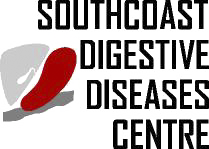APICONA THEME FOR MEDICAL AND HEALTH WEBSITES
Duis autem vel eum iriure dolor in hendrerit in vulputate velit esse molestie consequat nulla facilisi.
ADVANCED TECHNOLOGY
Lorem ipsum dolor sit amet, consectetur adipiscing elit. Etiam quis placerat urna. Nulla nulla diam, adipiscing non ornare non, commodo adipiscing elit.
24/7 AVAILABILITY
Lorem ipsum dolor sit amet, consectetur adipiscing elit. Etiam quis placerat urna. Nulla nulla diam, adipiscing non ornare non, commodo adipiscing elit.
HEALTHCARE SOLUTIONS
Lorem ipsum dolor sit amet, consectetur adipiscing elit. Etiam quis placerat urna. Nulla nulla diam, adipiscing non ornare non, commodo adipiscing elit.
WHY CHOOSES OUR RESEARCH?
Showcase your work with colorfull hover effect and seperate your works in categories
OUR AWESOME TEAM
We bring you an awesomeness of design, creative skills, thoughts, and ideas
Dr Sarjit Singh
Sarjit Singh graduated from The University of New South Wales. He trained at Woden Valley and Royal Canberra Hospitals in Canberra over the next 2 years. He has been working in Emergency Medicine over the last 25 years, initially at The Tweed Heads District Hospital and currently at The Pindara Private Hospital where he […]Dr. Bhaskar Chakravarty
MBBS, PhD (Newcastle), PhD (Cambridge), FRACP
Lorem ipsum dolor sit amet, adipiscing elit. Maecenas neque diam, luctus at laoreet.WHAT OUR PATIENT SAY
Mirum est notare quam littera gothica, quam nunc putamus parum claram
Testimonials come here...
Testimonials come here...
Diverticular Disease: What has changed
in the last 25 years?
We have learned of atypical forms of diverticulitis such as segmental colitis associated with diverticulitis (SCAD) and symptomatic uncomplicated diverticular disease (SUDD). Additionally, we’ve learned of the role of prophylactic therapies such as fibre, probiotic, prebiotic etc. and we also address the role of antibiotics and post diverticulitis colonoscopy.
Prevalence: 41.7% and increases by 25% with aging.
Diet: fibre derived from vegetables, fruits and a diet low in red meat and fat is associated with less diverticular complications.
Caffeine, alcohol and smoking can be associated with more complications. Running and Jogging is associated with decreased risk of diverticular complications.
Obesity is associated with increased risk of complication particularly in women with BMI greater than 30. Low Vitamin D can be associated with worse outcome such as abscess.
SCAD presents with diarrhea, bleeding and cramps. There is interdiverticular mucosal inflammation. Variably responds to ciproxin, metronidazole, mesalamin and prednisone. Can develop stricture or inflammatory bowel disease long term.
SUDD is characterized by pain, constipation and chronic inflammation in and around diverticuli. Elevated faecal calprotectin is seen on occasion. Treatment is with mesalamine, rifaxamin, probiotics and surgical resection.
Prophylaxis and treatment summary:
- Increased fibre consumption reduces risk of diverticulitis.
- Mesalamine reduces risk of recurrent diverticulitis in SUDD patients.
- There is data to suggest reduction of diverticulitis recurrence with combination treatment of Rifaxamine and increased fibre consumption.
There is evidence now that majority of uncomplicated diverticulitis can be treated without antibiotics. The American Gastroenterological Association supports this position; however, the American Society of Colorectal Surgeons still recommends antibiotic treatment in this situation but recommends surgery be used in complex cases such as those with abscess.
Colonoscopy is still recommended in 4-8 weeks post-diverticulitis to rule out bowel cancer (1.1%) or advanced adenoma (3.8%)
Reference and recommended reading:
South Med J.2018;111(3):144-150


Pancreatic Cancer: The Surreptitious killer

H. Pylori related diseases:Where are we at & where are we going?

A Snap Shot and Update on Common Issues in Gastroenterology

Management of Diverticulosis





